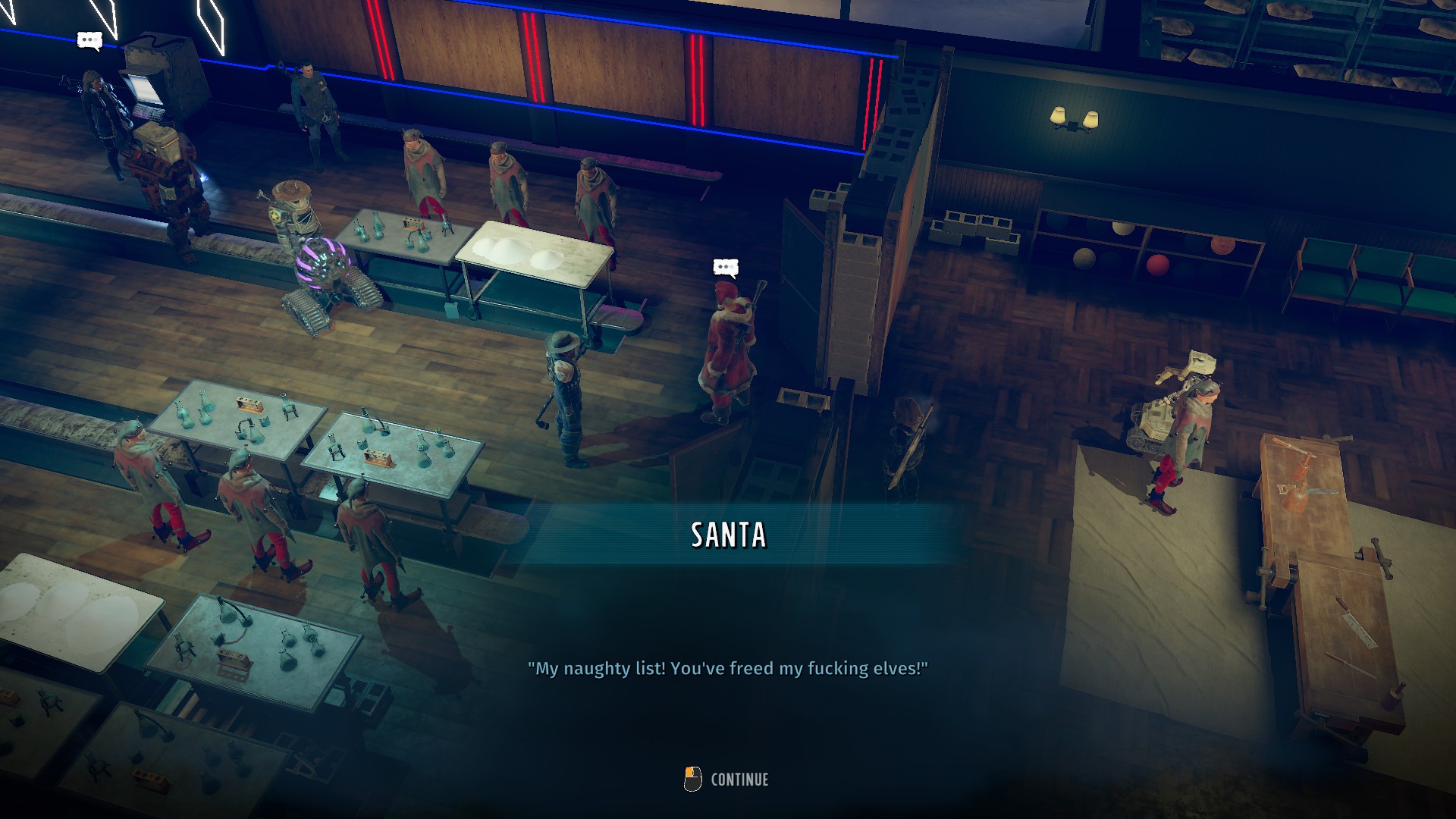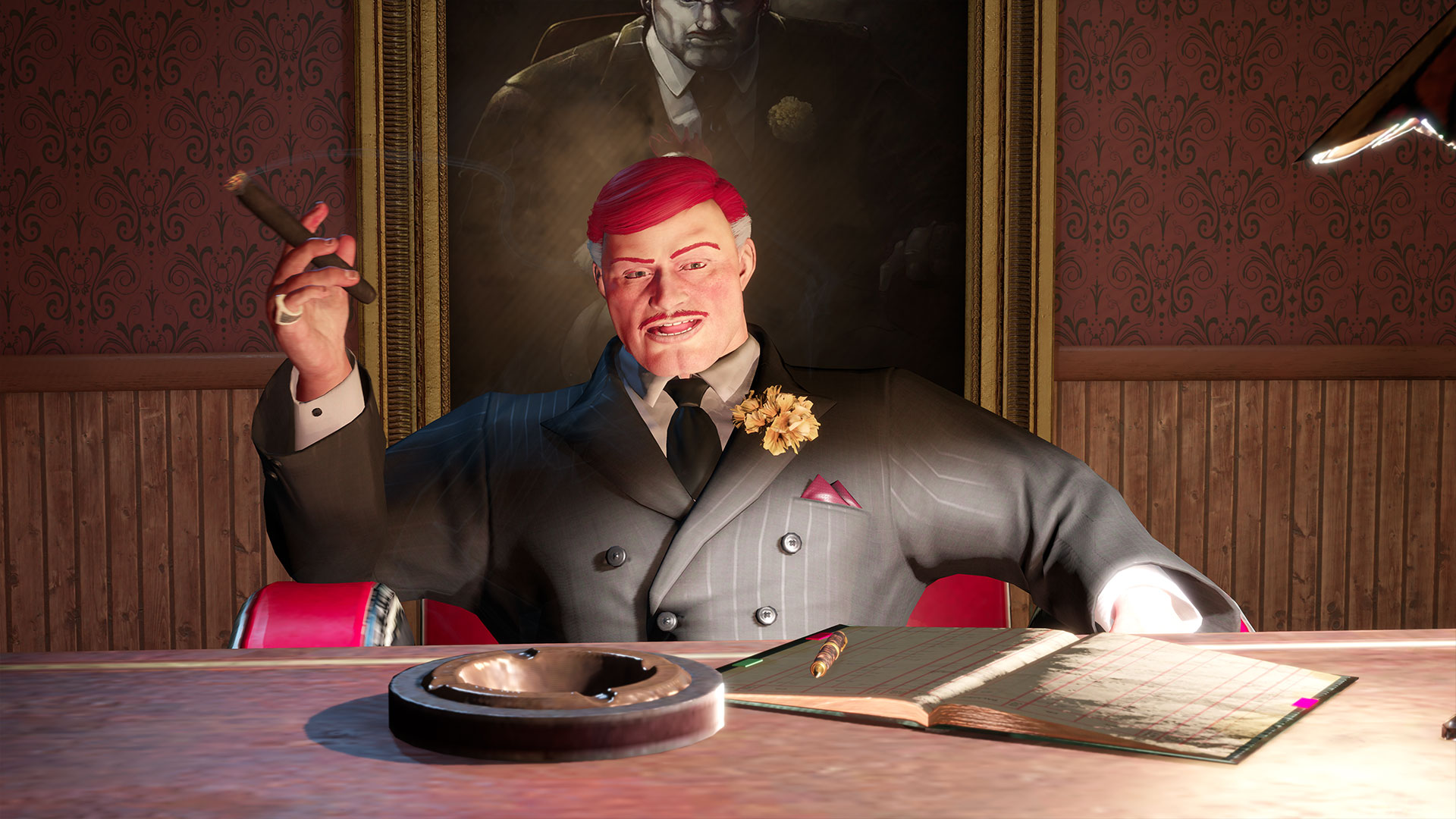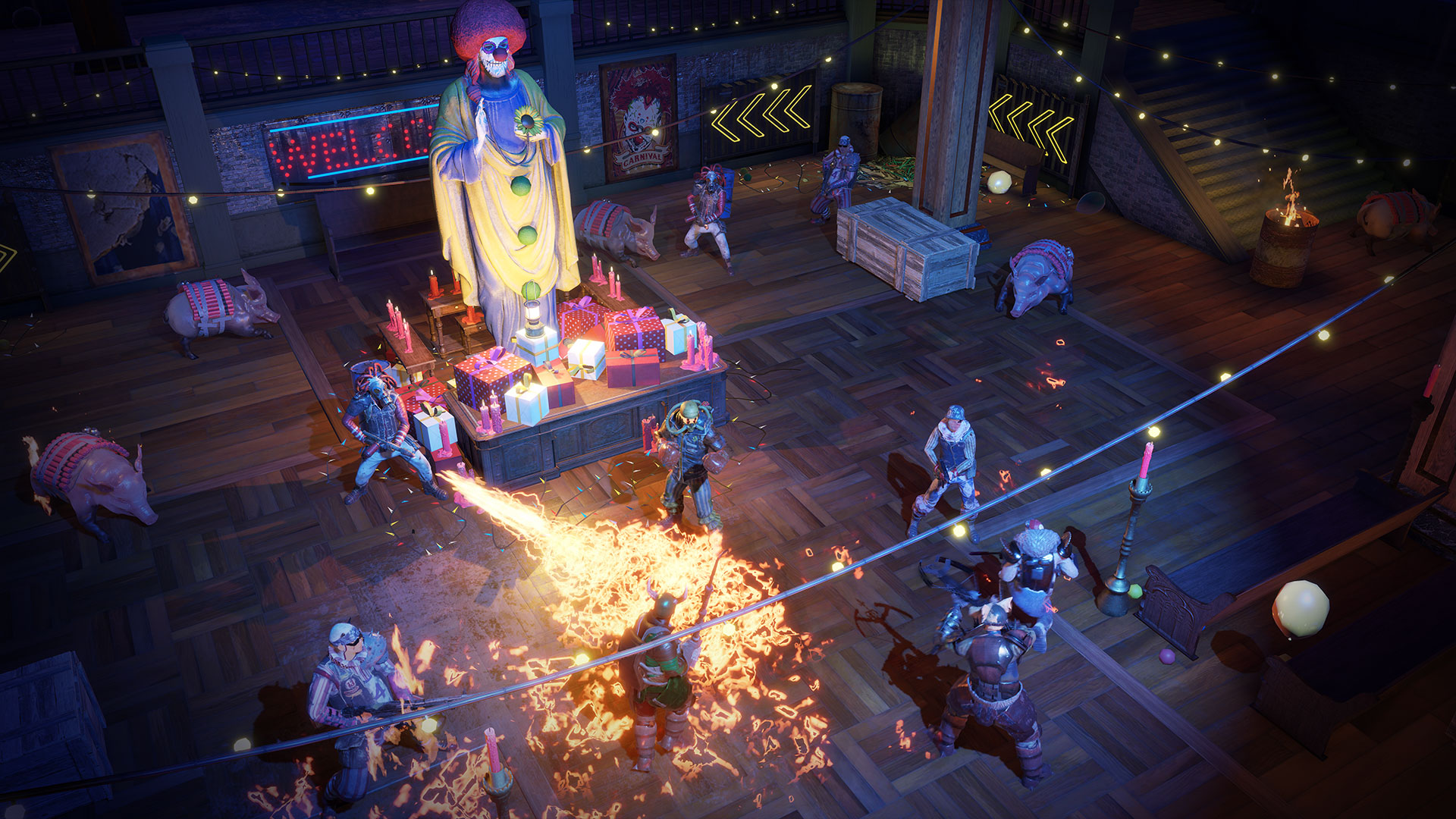This underrated post-apocalyptic RPG is the perfect blend of Fallout and Baldur's Gate, which means I've already played for 38 hours and killed Santa
If you like making tough decisions and finding fun in nuclear war, let me introduce you to Wasteland 3

It's mid-October, and I've just killed Santa. Not the real big man, I should clarify, but someone remarkably similar. Besides having the same name, he's got the same cozy red robes, a workshop full of elves who are hard at work, and a fondness for home-baked cookies. Unfortunately, we're meeting in post-apocalyptic RPG Wasteland 3, where nothing is as sweet as it seems.
Out in the wasteland of Colorado, ol' Kris Kringle rules his workshop with an iron fist. His elves – who make highly addictive drugs, not toys – beg for death if not freedom, and are collared with explosive fairy lights. As I'm playing a band of do-gooder Desert Rangers sent north from Arizona to secure supplies, my first instinct is to liberate these elves peacefully. But when I find a computer and disable the "naughty list", which is Santa's programme for remotely detonating his elves' collars, St. Nick drops his kindly veneer and unleashes legions of festively-named robots to kill ranger and elf alike.
When the fighting ends, Santa and his scrapheap lie in pieces across the floor, and his captives are free. Er, kind of. There's one last choice to make: do we free his elves so that they can start a new life in the wastes, or keep them indentured under new management? Hohoho, welcome to Wasteland 3.
Rather be in Colorado


Wasteland 3 review: “A terrifically executed RPG that rewards player investment”
If Wasteland 3's isometric off-kilter apocalypse sounds familiar, it should. Its developer, inXile Entertainment, was founded by Brian Fargo, the executive producer of Fallout 1 and 2. More importantly, Fallout itself was considered a spiritual successor to the original Wasteland game, which launched all the way back in 1988.
Try as I might to get into those first Fallout games, I've never been able to break through the awkwardness that comes with their age. It's particularly frustrating because Baldur's Gate 3 has left me with a craving for more isometric RPGs, and I suspect that Fallout would scratch that itch if I could only work out what to do with it. Fortunately, Wasteland 3 pairs Fallout's long-revered tone with modern sensibilities – and after rolling credits on my first 38-hour playthrough, I'm a little shocked this one crept past me for so long.
Wasteland 3's premise is deceptively simple. When their base in Arizona is destroyed, a detachment of Rangers are sent to Colorado, where they've promised to help the Patriarch – leader of the state's iron-fisted "civilization" – in exchange for supplies to be sent back home. In return for his help, the Patriarch wants the Rangers to bring his three wayward children – a tech nerd, serial killer, and daddy's little dictator – home alive. As you establish a foothold in Colorado, things get more complicated. The Patriarch's regime isn't as squeaky-clean as it seems, and while the promise of feeding folk back home hangs overhead, your mission becomes a question of how much you're willing to overlook. Through constant power brokering you can become the Patriarch's lapdog, outright oppose him, or let your morals guide you to do what's right by Colorado – though that's never as clear-cut as it sounds. There are oodles of big, world-changing decisions to make – think picking between factions in Fallout: New Vegas – and your actions have far-reaching consequences.

Sometimes there isn't even a defined right or wrong choice to make, only a blind leap of faith based on what your gut is telling you. In my own playthrough I nearly lost the Patriarch's support after executing his unhinged middle child, unable to stomach taking him in alive after seeing the depths of his depravity first-hand. Elsewhere, the town of Colorado Springs lost its electricity because I couldn't stand by and let the oil-drilling Gippers – a cult worshiping an AI model of "God-President" Ronald Reagan – sacrifice someone to resurrect their republican-in-chief. It's these choices that give Wasteland 3 (and many of the best RPGs I've played) stakes: they create worlds that can't be hyper-optimized with one goody-two-shoes choice after another, forcing you to be a big, bumbling human who might not get everything right.
Weekly digests, tales from the communities you love, and more
Besides stressing over every line of dialog, I loved watching my Rangers slowly become a force to be reckoned with. Wasteland 3's turn-based combat starts tough – early on I constantly ran out of ammo mid-fight – but as you gather better gear and invest more points into your party's skills, the tide shifts. Wasteland 3's systems all feed nicely into one another, and your character sheets play a big part in fighting: my resident tech nerd, for example, could turn enemy robots and turrets against each other; while expert lockpicker Coyote unlocked side-routes that often led to perfect flanks. On a baser level, fighting is wildly satisfying. Cryo guns can turn opponents into delicate statues waiting to be shattered, while a critical hit from one particularly powerful laser sniper rifle could disintegrate a raider in a single shot.
I won't spoil how I used all of that accumulated power, in the hopes that any Baldur's Gate or Fallout fan reading this will give Wasteland 3 (which is on Game Pass!) a shot. But I will say one thing: when the credits rolled and I watched slide after slide outlining the consequences of my choices, Santa's elves were nowhere to be seen. Did they find new, better lives somewhere else in Colorado? Are they still toiling in that forever-festive workshop, making sweetly moreish Brain Candy for some Rangers who lost their way while make Colorado a better place? I already know the answer, but I'm sure as sleigh-bells not telling.
Can't get enough of setting the world on fire? We recommend checking out these games like Fallout.

Andy Brown is the Features Editor of Gamesradar+, and joined the site in June 2024. Before arriving here, Andy earned a degree in Journalism and wrote about games and music at NME, all while trying (and failing) to hide a crippling obsession with strategy games. When he’s not bossing soldiers around in Total War, Andy can usually be found cleaning up after his chaotic husky Teemo, lost in a massive RPG, or diving into the latest soulslike – and writing about it for your amusement.


